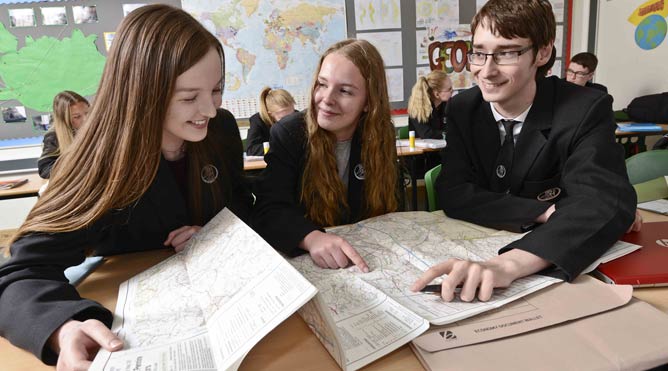Geography is a 21st-century subject, for students who are interested in the dynamics of the modern world and how the people within are changing it. The relationship between human populations and physical environment.
Recent current events have again highlighted the importance of the subject on a global scale. Geographers are taught to combine the study of natural processes and human interactions, and the subject can provide the vital bridge between 'humanities' and 'sciences'. Descriptive, analytical and evaluative skills are also taught. There are opportunities to experience the subject both in the classroom and through fieldwork as well.
Why Geography?
Geography will appeal to those students who:
- Are interested in current affairs.
- Have a concern for the environment and the people within.
- Enjoy travel and exploring new places, people, landscapes and events.
- Enjoy their learning with a passion.
Geography is classed as a key 'facilitating subject' by top Russell Group universities.
Any special requirements?
Students should have achieved at least a grade 6 in GCSE Geography.
What will I study and how will it be assessed?
Students study the AQA Geography A Level Course, which is a two year course. There is no option to sit the AS in Geography due to the topics studied.
Paper 1 (Physical) - 40% of total marks
Topics assessed: Hazards, Water and Carbon Cycles, Coasts
Paper 2 (Human) - 40% of total marks
Topics assessed: Changing Urban Environments, Changing Places, Global Systems and Governance
Geography is also one of the only traditional subjects that offers part of the course as a Non-Examined Assessment (NEA), commonly known as Fieldwork. Students submit a 6,000 word project, with a title of their choice, which is worth 20% of the final grade and is completed both inside and outside lesson time.

Purpose and Provision
Download a copy of the Geography Departments Purpose and Provision document here.
Curriculum Map
Download a copy of the Geography Departments Curriculum Map document here.